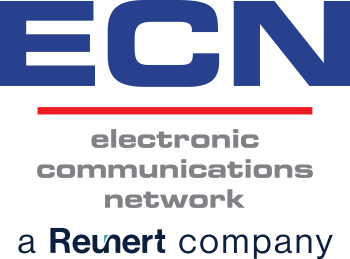Lightning fast internet connections, reduced latency and generally enhanced connectivity have seen fibre optic taking over traditional ADSL for internet provision. The benefits to business have not been overlooked and the South African corporate sector is quickly moving over to fibre optic as its preferred choice.
Fibre-to-the-Business (FTTB) is where the fibre cables connect to a shared business property and, while this is an incredibly efficient system, there are many service providers offering a range of different fibre packages. Here are some things to consider before taking the plunge into fibre connectivity for your business.
Fibre to the Business
Packages available
The packages should be scalable, allowing you to add or remove lines as the business changes shape. You should be able to tailor your business package by adding items such as data, voice, video or IP-based products. FTTB options include:
- Dedicated uncapped – this option provides your business with guaranteed high-speed connections because you’re using an uncontended line. This option, which is highly scalable, is ideal for sharing large data files suited to bigger corporates such as insurance companies, finance houses and digital agencies.
- Broadband uncapped – this option is congested which means it’s not quite as fast as dedicated uncapped but is much faster than the congested wireless and ADSL services available. It’s a really great option for medium-to-small business enterprises.
- Open-access network – here you have high speed internet at a lower cost. It’s the perfect solution for small businesses, home offices, retail shops and restaurants. Within the FTTB you are able to choose from broadband bundles, retail bundles, or broadband only.
Read more: Fibre for corporates
What to look out for
While many service providers might promise incredible Fibre-to-the-Business packages, it’s important to analyse exactly what they’re offering in terms of packages. Here are some of the aspects that should be discussed before entering into any contract:
- Installation time – moving onto a FTTB package might not be an instant occurrence as it depends on the area size and demand. It’s worth checking what provisions will be made during this transition to fibre.
- Fibre range – a larger office space might require extra equipment to ensure the FTTB service provides sufficient coverage throughout. Check with your service provider as to whether extra boosters or Wi-Fi routers will be required.
- Data offerings – the majority of FTTB packages will be uncapped because of the massive demand, however home-based offices might get away with capped services. In this scenario, it’s important to check how much data is actually offered and how reliable the service actually is.
- Scalability – it’s difficult to accurately determine the growth of a business and subsequent connectivity requirements which means scalability within a FTTB package is a must.
- Follow-ups – although installation is important, the monthly services included in the fee are even more important. You don’t want to get locked into a contract where you end up paying much more than you bargained for when it should be included in the price.
Read more: Business fibre glossary of terms
Check the fine print
As with any contract, it’s the fine print that needs particular attention as this is where you’ll get caught out. Here are some elements that FTTB service providers might sneak into the fine print:
- Contract lengths – the average FTTB package will run for 12- or 24-month periods, however, some providers insist on a 36-month contract which is only evident when you check the contract carefully. This becomes problematic when you’re not satisfied with your provider or are looking to move premises within that timeframe. Some providers offer month-to-month contracts which is generally preferable to businesses.
- Cancellation fees – for the more unscrupulous FTTB service providers, a very large cancellation fee will be hidden in the fine print, so make sure you ask about this upfront.
- Line congestion – make sure that the uncapped line you are paying for has consistent speeds regardless of data use. Some service providers will charge for uncapped but throttle the line when a certain data to limit further use.
- Line speeds – likewise, FTTB service providers might promise one speed but offer another. In addition to checking this all in the fine print, make sure you check your line speed as well.
If you are having any misgivings about signing a contract, rather have someone with industry knowledge go over the finer details to ensure you are getting exactly what you paid for. A reliable FTTB service provider will take the time to go over the contract thoroughly, and explain all the fine print without pressurising you into a long-term contract unnecessarily.
ECN is a leading telecommunications partner in South Africa. ECN offers a broad set of cost effective voice, data and hosted services to meet our customers ever growing technological needs. Our market leading fibre solutions provide our customers with the option of replacing their existing voice service provider to substantially reduce their monthly telecommunications bill. Contact ECN today for leading telecommunications solutions.

